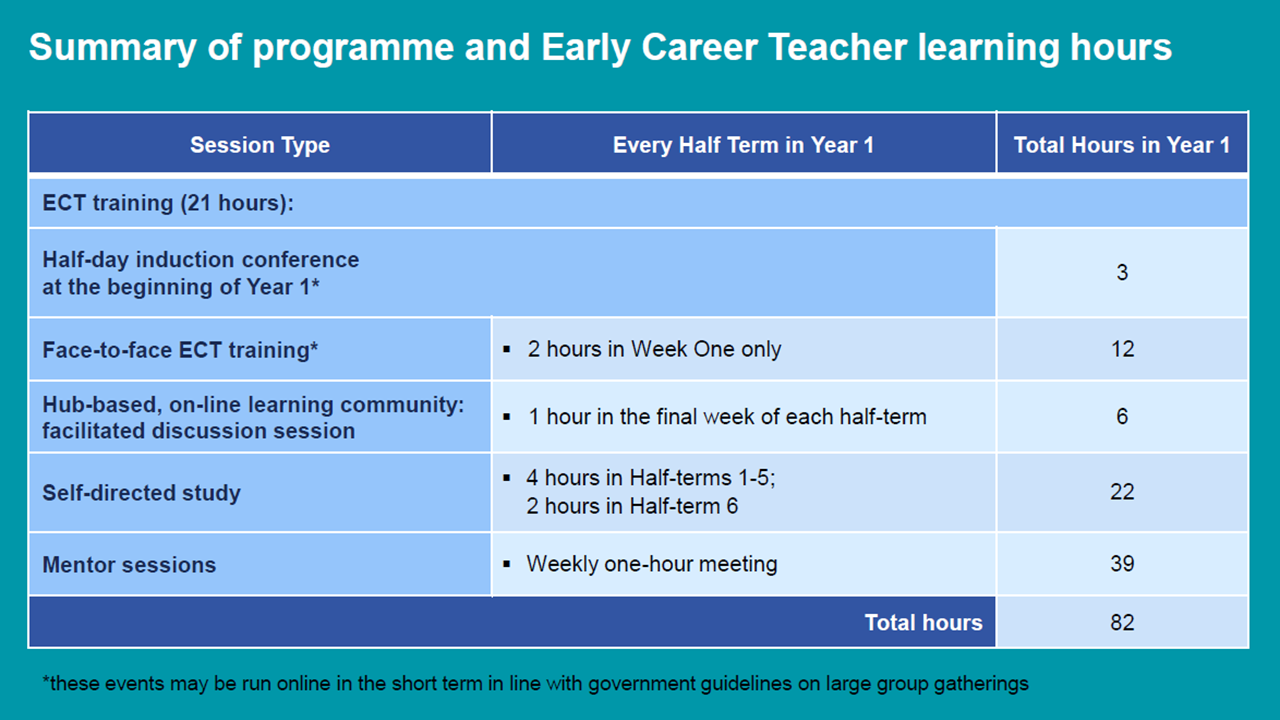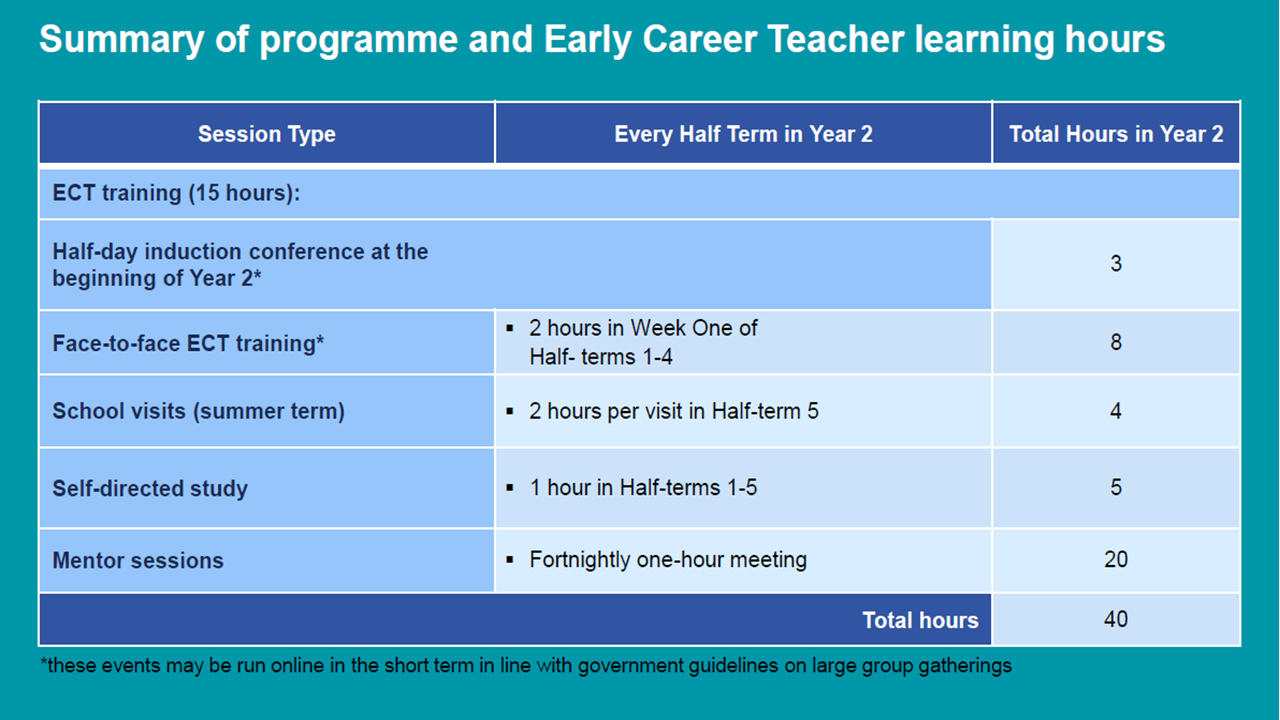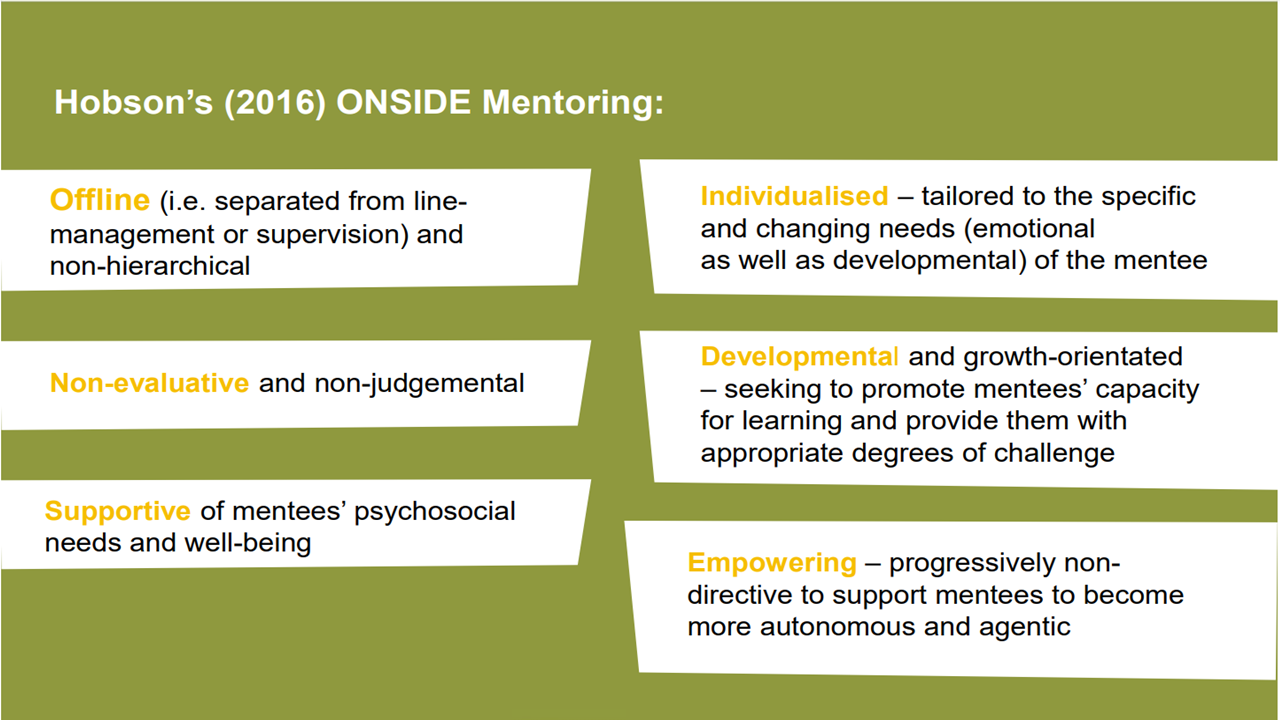- Home
- Join Us
- Early Career Teacher Induction
Early Career Teacher Induction
Early Career Teacher Induction Cockburn MAT
From September 2021, all Early Career Teachers (ECTs), will access a statutory 2 year Early Career Framework (ECF) induction.
In School Induction
On your arrival to the Academy you will complete a general induction when you start, so that you understand the MAT and Academy’s ethos, policies and procedures. You will attend regular whole-school/cluster/multi-academy trust training events and you should also have the opportunity to attend CPD relevant to your specific needs. In addition, as an ECT you will be enrolled with Leeds Teaching Schools Hub on an Early Career Framework professional development programme from the University College of London (UCL)
Timetabling & Additional release time
Your timetable should reflect a range of classes and key stages. As well as the 10% planning, preparation and assessment (PPA) time that all teachers are entitled to, as an ECT you are entitled to 10% additional release time in year 1 and 5% additional release time in year 2. The additional release time is provided to enable you to complete professional development activities (such as observing colleagues, self-study/reading, attending training courses) and to meet with your Mentor and Induction Tutor.
In-school support
As an ECT, you will be allocated a Mentor who is the ‘expert colleague’ in the ECF and an Induction Tutor to support, monitor and assess you against the Teachers’ Standards. In addition, you will be allocated an ECT Facilitator who will guide, support and deliver central CPD alongside the staff within the Academy.
You will meet with your Mentor regularly to discuss activities related to the Early Career Framework professional development programme you are completing. Your mentor will provide coaching, formative feedback on your teaching and signpost you to relevant research/resources.
You will meet with your Induction Tutor at least once per term to agree relevant development targets, to discuss your progress against the Teachers’ Standards and for MAT based CPD sessions.
The Appropriate Body
Our Appropriate Body (AB) is Leeds Teaching Schools Hub. The AB has a role in checking that ECT’s receive statutory entitlements, are fairly and consistently assessed, and receive a programme of support and training based on the ECF. The AB makes the final decision as to whether an ECT has met the Teachers’ Standards on the recommendation of the Headteacher in the Academy where they work.
The Early Career Framework: full induction programme delivered in partnership with UCL
Early Career Framework (ECF) programmes are evidence-based professional development programmes developed for ECTs and mentors. The ECF programme will build upon your initial teacher training year and help support your developing practice in 5 core areas:
- Behaviour management
• Pedagogy
• Curriculum
• Assessment
• Professional behaviours
As an ECT you can expect a structured programme of professional development which will include attending training sessions with other ECTs, webinars, self-study/reading and follow-up activities to complete in the Academy with the support of your mentor.
In partnership with Leeds Teaching School Hub the Cockburn MAT delivers The Early Career Framework programme. The ECT will work intensively with a carefully chosen mentor who will be given time and have a proven track record to carry out effectively the mentor role. The mentor will provide effective targeted feedback, and support, and will ensure the Early Career Teacher understands and applies the knowledge and skills set out in the framework so they receive a high-quality ECF-based induction programme. There will be outstanding professional development, not only for the Early Career Teacher, but also for the mentor involved in the programme.
ECF Content
Following the UCL Institute of Education provider-led programme, ECT’s in Year 1 will study five carefully designed modules that span the full breadth of the Teachers’ Standards. In Year 2 Early Career Teachers will enhance their teaching through four modules with an enquiry-based approach. In this second year the programme will be a bespoke one, with the Early Career Teacher focusing on areas of personal educational interest – behaviour, pedagogy, curriculum, assessment and professional behaviours.
Year 1: 5 Themed modules mapped to the Teachers’ Standards
Autumn term 1
Module 1: Enabling pupil learning
(Teachers’ Standards 1 and 7)
Setting high expectations for learning and behaviour, and practical strategies for shaping the learning environment to enable pupil learning. A structured programme of co-observation, reflective practice, scripting and rehearsal equips the ECT with foundational learning skills that underpin self-study and continuing professional development.
Autumn term 2
Module 2: Enabling pupils in learning
(Teachers’ Standards 2 and 3)
Developing a rich conceptual understanding of pupil learning, memory and subject/specialism expertise. Applying this to teaching through carefully structured activities that connect theory to the ECT’s practice.
Spring terms 1 and 2
Module 3: Developing quality pedagogy
(Teachers’ Standards 4 and 5)
Exploring and applying strategies to support high quality planning and adaptive teaching that addresses the needs of all pupils
Summer term 1
Module 4: Making productive use of assessment
(Teachers’ Standard 6)
Investigating approaches to assessment and feedback that improve learning and make efficient use of time, in and out of the classroom.
Summer term 2
Module 5: Fulfilling professionalism responsibilities (I)
(Teachers’ Standard 8)
Building skills in working with others within and beyond the Academy to improve teaching and manage professional development across a career in education
ECT learning in each half term is fostered through an integrated programme of self-study, ECT mentor meetings, online and face-to -face training events. Learning activities address ECT’s knowledge of the Early Career Framework content and their ability to put this into practice to bring about high-quality pupil learning.

Year 2 deepens both ECT’s understanding of the content of the Early Career Framework and their ability to enact this content through their teaching. Mentoring approaches and opportunities to conduct supported practitioner enquiry build on ECT’s growing expertise as skilled professionals. Increased challenge in carefully tailored learning activities prompts ECTs to ‘look up’ from an initial focus on their own practice to evaluate their impact on pupils learning.
Autumn term 1
Module 6: Enquiry into enabling pupils learning
Autumn term 2
Module 7: Enquiry into enabling pupils learning
Spring term and summer term 1
Module 8: Enquiry into developing quality pedagogy and making productive use of assessment
Summer term 2
Module 9: Fulfilling professional responsibilities (II)

Progress reviews and formal assessments
A formal assessment report reviewing your progress against the Teachers’ Standards will be completed by your Induction Tutor at the end of year 1 and year 2. In terms 1,2,4 and 5 your Induction Tutor will submit a progress review which is a briefer summary of progress made against the Teacher’ Standards that term. These assessments/reviews will be informed by a wide range of evidence. You are not expected to collate additional evidence for these as you should naturally collate evidence as you progress through induction. However, it is a good idea to keep an electronic copy of anything that might be relevant, particularly if related to your development targets, so that you can easily locate and discuss with your Induction Tutor when you meet with them.
Moving schools during induction
It is possible to complete induction in more than one school. If you leave the Academy midway through induction, each full term is ‘banked’ so you can pick up induction where you left off. If you move to a new school, your progress reviews and assessments will be forwarded to the school once you are registered as an ECT there.
Mentors and facilitators
These colleagues will lead you through the framework:
Your mentor will be your go-to colleague in the Academy and will use
Hobson’s (2016) ONSIDE mentoring model

Your facilitator will be a further layer of support who will work with you outside your school
Facilitators will work with approximately 20 ECTs, from a range of Academies, and you will meet with them each half term, both face-to-face and on-line.
Your subject leader will support you and your mentor and deliver key messages on, subject knowledge, teaching, learning and assessment, CPD and quality assurance -work scrutiny/observations/meetings
Below are the key roles and responsibilities:
ECT1:
- Meet the Teachers’ Standards
- Attend the school ECT programme of CPD and use the additional 10% PPA time effectively.
- Engage fully in the ECF programme
- Attend induction conferences, face to face ECT training and hub based facilitated learning sessions
- Attend weekly mentor meeting sessions and record outcomes/actions
- Ensure self directed study/tasks are completed before weekly mentor meeting
- Be responsible in ensuring they are observed twice per half term by mentor/induction tutor/SLT or staff that have been teaching for more than 2 years.
- Attend half termly review meeting
- Seek advice, feedback and support if they are struggling with meeting the Teachers’ Standards or wellbeing
- Liaise with mentors/induction tutor in regards to how effectively the Teachers’ Standards are being met
- Work in collaboration with mentor to update tracking document at least half termly
- Conduct at least 1 Pobs per half term
ECT 1 Mentor:
- Ensure the ECT is attending CPD and engaging fully in the ECF programme
- Ensure the ECT is using the additional 10% PPA time effectively
- Use UCL mentor materials to prepare for weekly ECT meetings
- Meet weekly with the ECT
- Engage with appropriate ECF Mentor CPD materials from the UCL and attend Mentor OLC
- Meet half termly with the ECT and complete progress tracker
- Ensure the ECT is attending half termly review meetings
- Ensure ECT is conducting at least 1 Pobs per half term
- Immediately inform induction tutor and subject leader of any concerns
- Observe the ECT once per half term and send copies of feedback to subject leader and induction tutor
Induction Tutor:
- Ensure that ECTs attend the seminar programme of CPD and knows how to use the additional 10% PPA time effectively
- Ensure and the ECT is engaging in the ECF programme and challenge if not doing so
- Deliver and facilitate high quality CPD
- Ensure ECTs are observed twice per half term (at least once from mentor) – copies of feedback to the mentor/induction tutor
- Ensure the ECT is attending half termly review meetings and recording these in the meeting booklet
- Ensure any concerns regarding the ECT is addressed according to policy
- Liaise with ECT mentors in regards to how effectively the Teachers’ Standards are being met
- Inform Headteacher and SLT of RQT progress regularly
- Hold formal reviews termly with mentors and ECTs
- Complete formal interim and final assessment reports for ECTs
- Complete all paperwork to be forwarded to awarding body, confirming the NQT’s progression towards the Teachers’ Standards